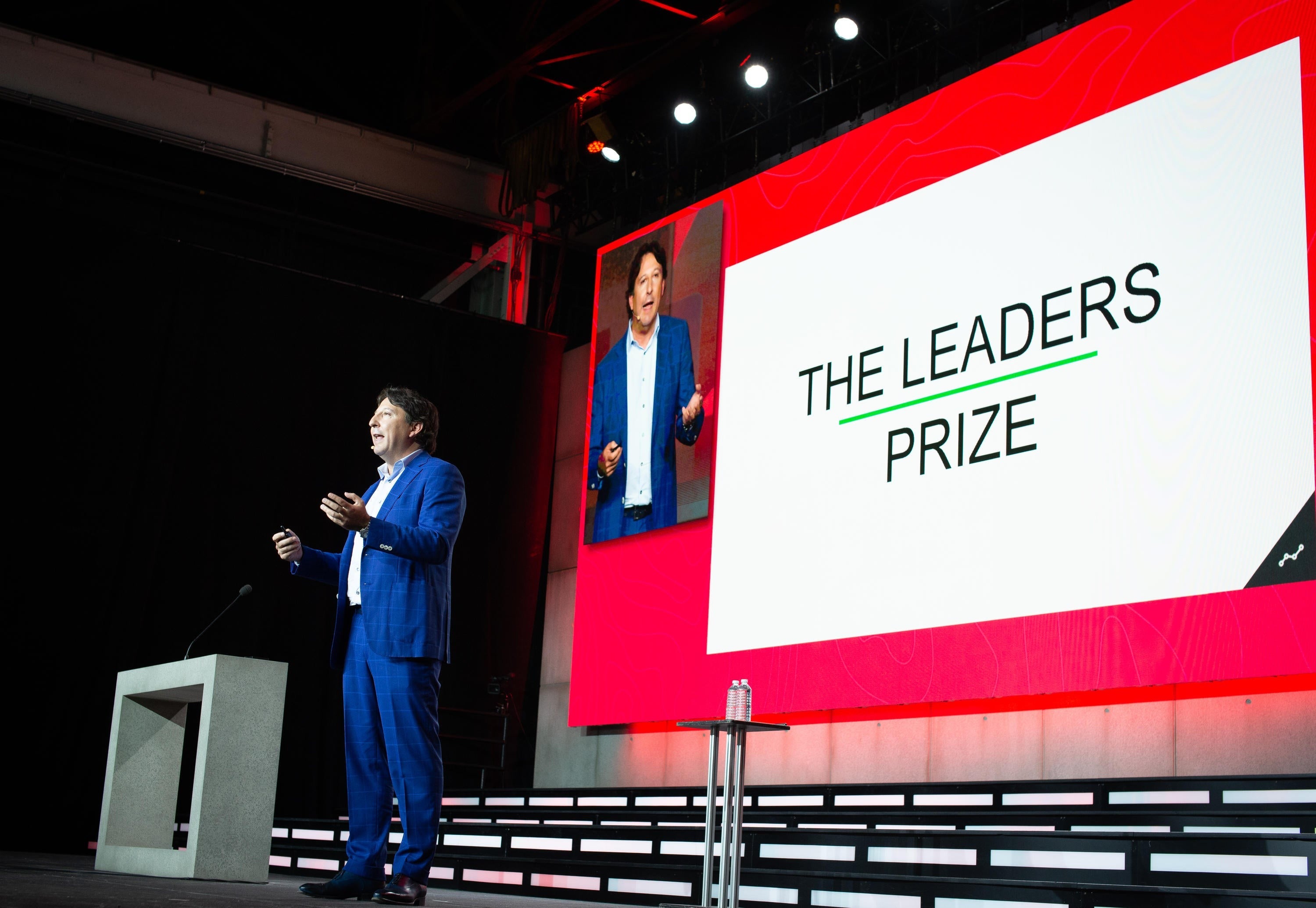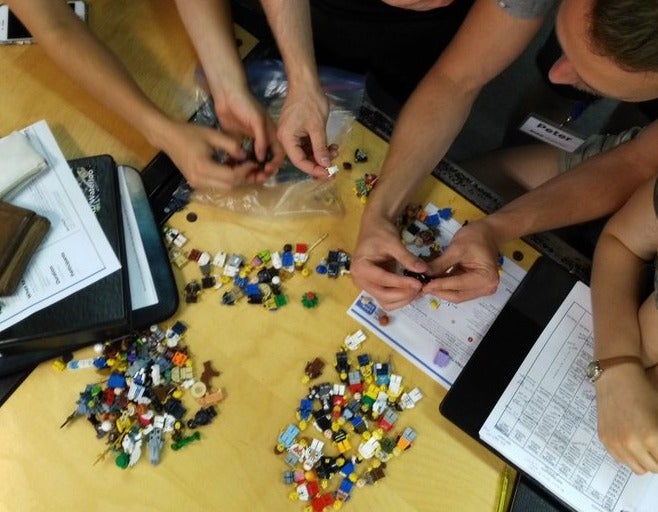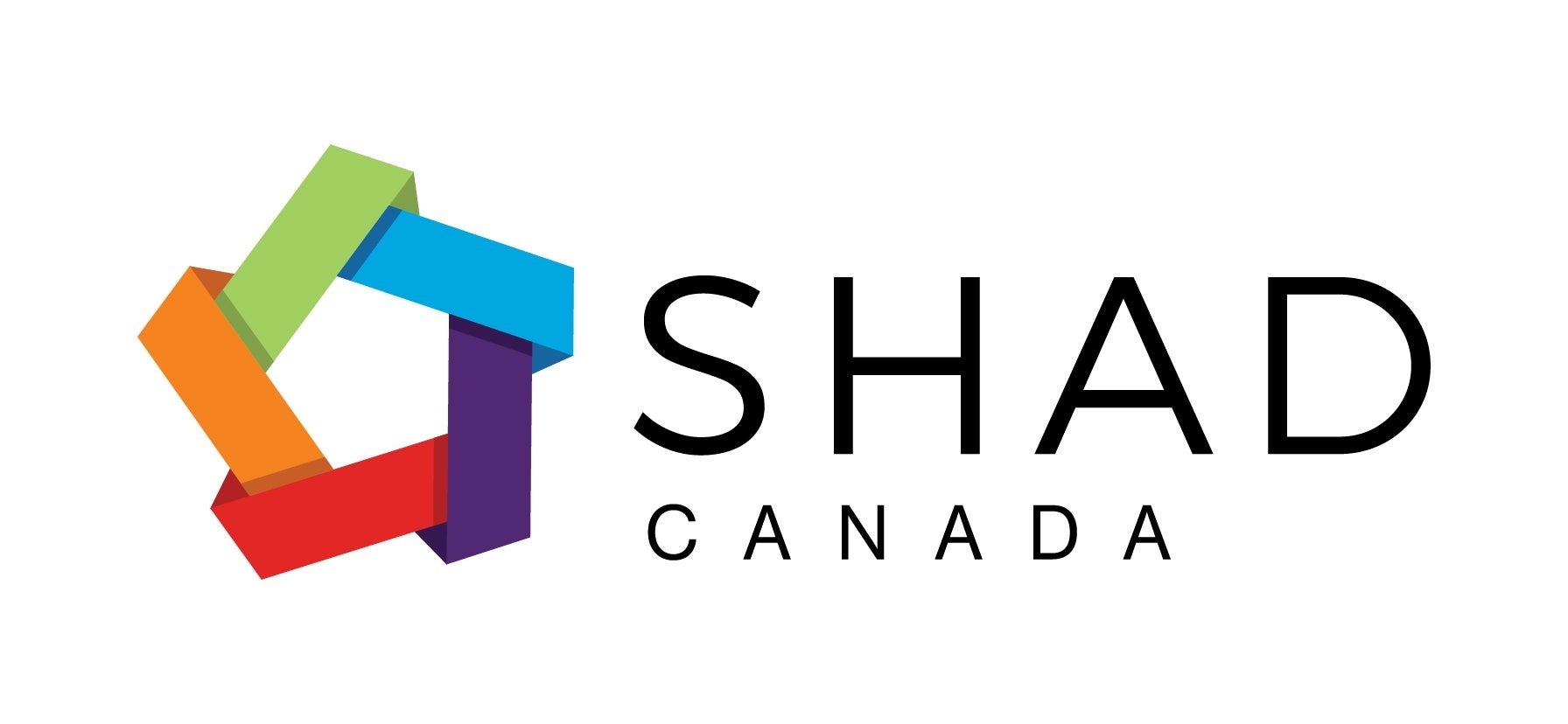Editor:
Brandon Sweet
University Communications
bulletin@uwaterloo.ca
Schulich Leaders Prize takes aim at fake news

David Stein, managing partner at the Leaders Fund, announces the Leaders Prize at True North Waterloo last month.
The Schulich Foundation has launched a cross-Canada competition that aims to deliver the straight dope on fake news through the fact-checking power of artificial intelligence.
The Leaders Prize was announced at True North 2019 on June 19.
The problem with fake news is that misinformation and disinformation prevent people from making informed decisions, ultimately jeopardizing the integrity of democracy.
That’s the problem Canadian teams have a year to solve using artificial intelligence. The team that best leverages the power of machine learning to quickly fact-check claims and stop fake news before it spreads will land the $1-million award. The University of Waterloo is the academic partner for the Leaders Prize.
While human fact-checkers have been debunking false reports since the dawn of journalism, the process is expensive and time-consuming given the ease of publishing misinformation online and spreading it on social media.
Fake news – typically created to generate advertising revenue or advance a certain political or social agenda – is so widespread, it’s becoming difficult to distinguish it from real news, said Communitech CEO Iain Klugman.
An artificial intelligence breakthrough will help people to know whether something they have seen online is accurate when its most relevant: before they read it.
Teams from all across Canada are invited to create solutions to automatically verify a series of claims, flag whether they are true, partly true, or false and provide evidence to support their determination.
The Leaders Prize competition is open to legal residents of Canada, with a maximum number of five members per team. The competition proceeds in two phases. In Phase 1 of the competition, the teams’ solution must automatically assign a truth rating to a given claim and provide a short text explanation of the rating rationale. There are three possible truth ratings: true, mostly true, and false. In Phase 2 of the competition, team solutions must also provide evidence to support the truth rating and text explanation for each claim.
The winning team will create artificial intelligence that assigns a truth rating to a given claim and provides evidence that either supports or refutes the claim. The team that verifies claims most accurately and provides the best supporting evidence wins $1 million.
The Leaders Prize organizers have provided detailed eligibility and contest rule documentation.
The competition closes on June 10, 2020 and the winners will be announced at True North 2020.
Shad program will take on waste reduction

This year's month-long Shad program began on Sunday, June 30 at the University of Waterloo with the arrival of 54 of the best and brightest high school students from across Canada.
In 1983, Waterloo became the first university campus to host this prestigious program that has helped Canada’s top youth find and reach their potential. The university has continued to play a crucial role ever since with Shad’s national office based in the city and many of the students deciding to come back after Shad to pursue their studies.

Shad is an award-winning enrichment program for students with a strong interest and potential in STEAM based subjects (sciences, technology, engineering, arts and math) and has helped serve as an incubator for entrepreneurship and innovation for the students who participate nation-wide. The Shad Network now includes an impressive 17,000 alumni including 32 Rhodes Scholars.
During the month of July, lectures and workshops are offered by top faculty from across campus, and from visionary leaders in the community. Rob Gorbet, Associate Professor and Chair of the Department of Knowledge Integration, is the Shad Waterloo Program Director. The University is now joined by a record 16 other universities hosting Shad from coast to coast.
“By exposing over 1,000 high achieving high school students this year to great ideas from leading faculty across Canada and some of the world’s biggest challenges, the students are inspired by the Shad network to start making an impact now,” said Tim Jackson, Shad’s President and Chief Executive Officer.
In one of the unique elements at Shad, during the first week, youth are challenged to innovate on a specific theme, built around a current economic and social problem. Shad youth, working in small teams, collaborate to design and engineer a new solution that addresses the problem. As part of this challenge, teams conduct market research, write business and marketing models, and design and build working prototypes.
The design project theme this year is “How might we help Canadians impactfully reduce our waste?”
Shads will hold a public open house to show off their achievements, including creative ideas they have come up with to tackle this year’s design project theme, on the afternoon of Thursday July 25, in the Great Hall at Conrad Grebel University College.
Beyond the Bulletin episode 5

Episode 5 of the Beyond the Bulletin Podcast is live this morning. The Faculty of Engineering’s Derrick Tan tells us how he beat out more than 12,000 others in a contest to work with a Formula One team, new senior administrators start administrating, and we mark National Indigenous Peoples Day. And you’re not imagining it: Orientation season is early this year. Check it out on SoundCloud or wherever quality podcasts are streamed.
Link of the day
When and Where
AHS 101 Day, Saturday, July 6.
Engineering 101 Day, Saturday, July 6.
Dissertation Boot Camp, Monday, July 8 to Thursday, July 11.
Waterloo Institute for Complexity and Innovation (WICI)’s Conversations on Complex Systems, Monday, July 8,, 12:00 p.m. to 1:30 p.m., STC 1019.
More Feet on the Ground - Mental Health Training for Students, Monday, July 8, 1:30 p.m., NH 2447.
Writing CVs and Cover Letters for Academic Job Applications – graduate students, Monday, July 8, 1:30 p.m. to 3:30 p.m., TC 2218.
Exploring Your Career Interests, Monday, July 8, 2:30 p.m. to 4:30 p.m., TC 1112.
Coping Skills Seminar - Challenging Thinking, Monday, July 8, 3:00 p.m., HS 2302.
Understanding the Pension Plan and your Annual Statement, Tuesday, July 9, 12:00 p.m. to 1:00 p.m., DC 1301 (Fish Bowl).
NFRF Exploration Grant webinar, offered in English, for faculty, Tuesday, July 9, 1:00 p.m. to 3:00 p.m., Davis Centre, Room 1302.
Eating Disorder Support Group, Tuesday, July 9, 4:00 p.m., NH 3308.
Get a Job Using LinkedIn, Tuesday, July 9, 4:30 p.m. to 6:30 p.m., LIB 329.
Science 101 Day, Wednesday, July 10.
NFRF Exploration Grant webinar, offered in French, for faculty, Wednesday, July 10, 10:00 a.m. to 12:00 p.m., East Campus 5, Room 3167.
Discover Your Career Values (for employees only), Wednesday, July 10, 12:00 p.m. to 1:00 p.m., TC 2218.
Alleviating Anxiety Seminar, Wednesday, July 10, 1:00 p.m., HS 2302.
Coping Skills Seminar - Empowering Habit Change, Wednesday, July 10, 4:00 p.m., HS 2302.
Information Session for Graduating Students, Wednesday, July 10, 4:00 p.m. to 4:50 p.m., STC 0020.
Part-Time Master of Business, Entrepreneurship and Technology Info Session, Wednesday, July 10, 6:00 p.m. to 7:00 p.m., online.
Velocity Start: Setup Your Business Like A Boss, “A workshop that will show legal and accounting considerations that will affect your new business,” Wednesday, July 10, 7:30 p.m., Velocity Start, SCH 2nd Floor.
Information Session for Graduating Students, Thursday, July 11, 11:30 a.m. to 12:20 p.m., STC 0020.
Exploring Your Personality Type (Myers-Briggs Type Indicator) Part II, Thursday, July 11, 12:30 p.m. to 2:30 p.m., TC 1214.
NSERC Discovery Grant drop-in sessions for faculty, Thursday, July 11, 2:00 p.m. to 3:00 p.m., Engineering 7, Room 7411.
Graduate Student Stress Management Group, Thursday, July 11, 3:30 p.m., HS 2302.
Résumés, Careers, and Personal Branding – Part I, Thursday, July 11, 4:30 p.m. to 6:30 p.m., LIB 329.
Speak Like a Scholar, Monday, July 15 to Thursday, July 18.
NFRF Exploration Grant webinar, offered in French, for faculty, Monday, July 15, 1:00 p.m. to 3:00 p.m., East Campus 5, Room 3167.
NSERC Discovery Grant drop-in sessions for faculty, Monday, July 15, 1:00 p.m. to 2:00 p.m., Mathematics and Computer Building, Room 5248.
Arts 101 Day, Tuesday, July 16.
Get STARTed: SSHRC Grant Writing Sessions in July and August, Tuesday, July 16, 1:00 p.m., HH 373.
NSERC Discovery Grant drop-in sessions for faculty, Tuesday, July 16, 1:00 p.m. to 2:00 p.m., Student Teaching Complex, Room 2002.
NFRF Exploration Grant webinar, offered in English, for faculty, Wednesday, July 17, 10:00 a.m. to 12:00 p.m., Davis Centre, Room 1302.
NSERC Discovery Grant drop-in sessions for faculty, Wednesday, July 17, 2:00 p.m. to 3:00 p.m., Psychology, Anthropology, Sociology (PAS), Room 2438.
Billion Dollar Briefing, “Get introduced to five different billion-dollar problems that are waiting to be solved,” Wednesday, July 17, 7:30 p.m., Velocity Start, SCH 2nd Floor.
Mathematics 101 Day, Thursday, July 18.
Graduate Student Stress Management Group, Thursday, July 18, 3:30 p.m., HS 2302.
Waterloo Institute for Complexity and Innovation (WICI)’s Graduate Student Complexity Seminar, Thursday, July 18,, 4:30 p.m. to 5:30 p.m., STC 1019 (speaker and topic TBA).